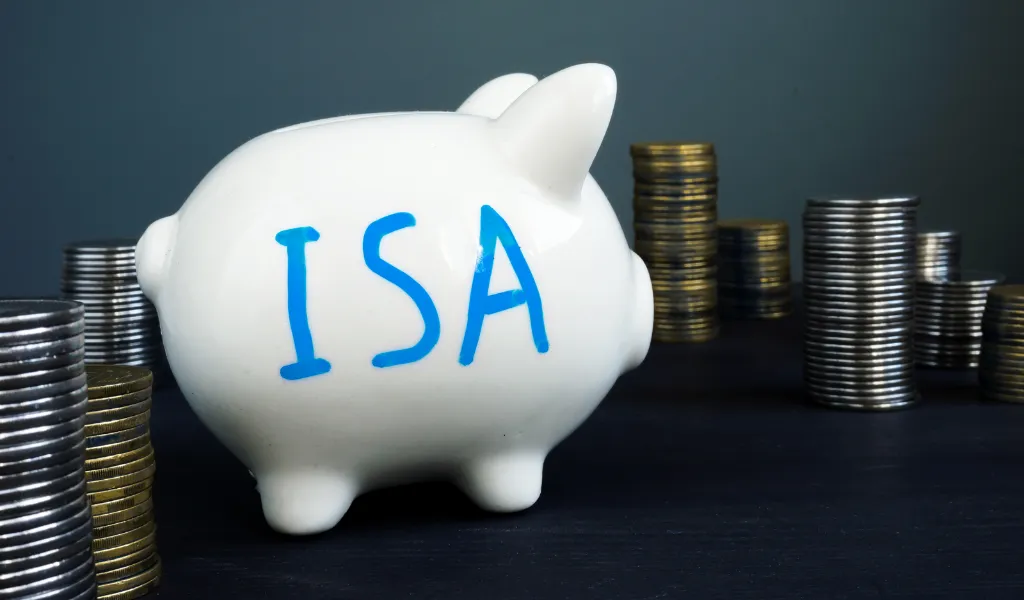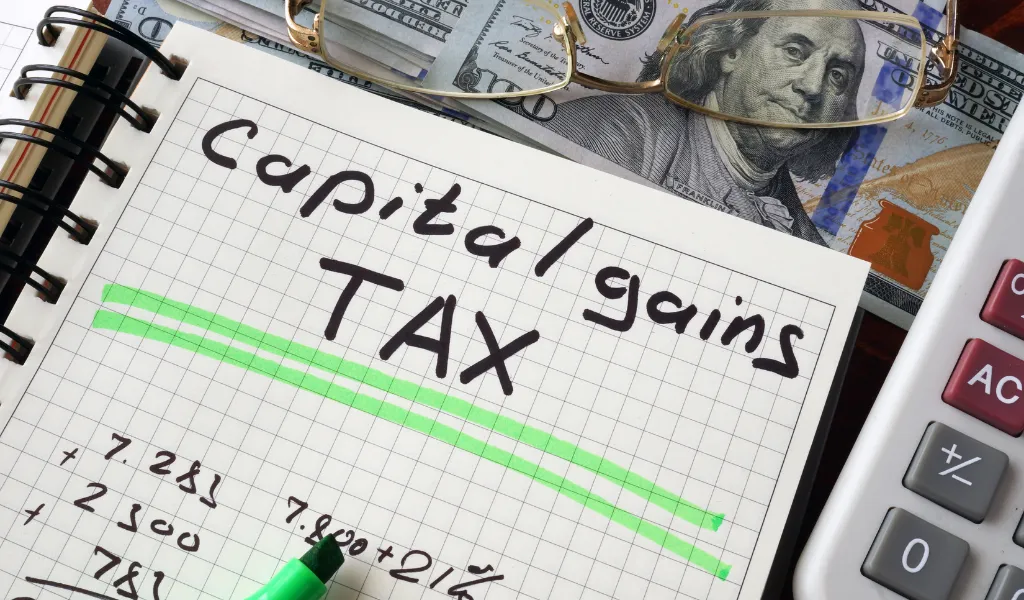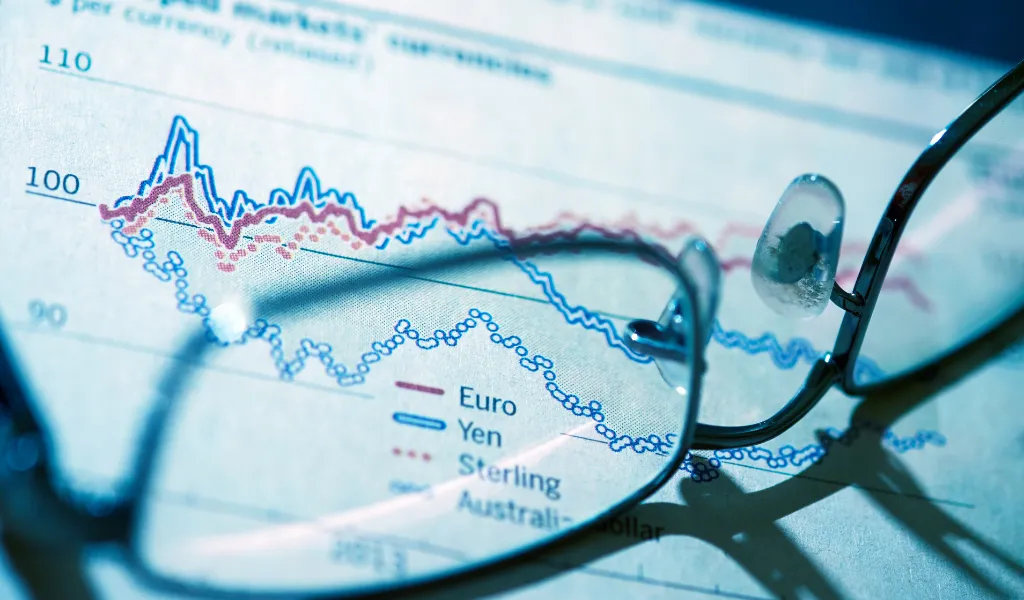Most people find ISAs far too complex to consider using them. It does not help that there are quite a few options to choose from. Nevertheless, they do have their positive points. One of the major ones being that you have an annual ISA allowance. This guide will cover everything you need to know about an Individual Savings Account. It will answer the question: are ISAs tax free?
First, let us discuss the definition of an ISA. Then, we can move on to the tax implications.
What is an ISA?
An Individual Savings Account (ISA) is a method to create savings in a structure that allows you to avoid paying tax on your returns. However, there is a limitation. Your individual annual ISA tax-free allowance is £20,000. It is the amount of money you can invest or save in an ISA in any tax year. Since 2017, this amount remains the same.
Often, people consider an ISA as a protective box. While “wrappers” is how financial professionals tend to refer to them. The good news is that they are tax free. These “wrappers” protect whatever they hold from HMRC. Two basic kinds of ISA exist. One is the Cash ISA, and the other is the Stocks and Shares ISA.
As a resident of the UK who is 16 years old or more, you have the right to save money every year. You can do so through anyone type of ISA. The taxman allows you to save a specific amount of money every year. This is called an ISA tax-free allowance. Per tax year, you have an allowance of £20,000.
After placing your money inside an ISA “wrapper,” no tax can apply to it. The length of the stay of the cash is irrelevant. When it comes to tax positions, they are the same for Cash ISA and Stocks and Shares ISA. The taxman cannot get to them. Then, are ISAs tax free?
What are the Different Types of ISAs?
As previously stated, Cash ISA and Stocks and Shares ISA are the two main types of ISA. Nevertheless, there are certain other variations. To comprehend them, you must consider the following five different ISAs:
- Cash ISA
- Stocks and Shares ISA
- Innovative Finance ISA
- Junior ISA
- Lifetime ISA
The innovative finance ISA is available for those who are willing to take a higher degree of risk. If you are not really against taking risks, then Stocks and Shares ISA is a great option. It has plenty of tax benefits and will bring you solid returns on your investment. Indeed, it is a clever investment tool. Financial Services Compensation Scheme (FSCS) typically covers the funds you invest in a Stocks and Shares ISA. While it does not cover the money, you invest in an Innovative Finance ISA. Cash ISA is the ideal option for those who are looking for as negligible risk as possible.

What is the Tax-Free ISA allowance in the UK?
Do the ISA tax-free rules apply to the ISA allowance? There is a tax-free ISA limit on the amount you can save every tax year. This is set by the UK government. For the tax year 2023/24, the tax-free ISA allowance is £20,000. You have the options to place the entire amount into a cash ISA. Also, you can place into an innovative finance ISA or a stocks and shares ISA. So, are ISAs tax free?
In the same tax year, it is not possible to place your ISA allowance into more than one of each type of ISA. Two stocks and shares ISAs are an example as such. Nevertheless, you can divide the allowance between the five different types of ISA. Make sure that you know the UK 2023 tax year dates so that you can take advantage of your tax-free ISA allowance within the year.
You should know that individual account limits apply to certain types of ISA before you divide your tax-free ISA allowance. For example, Lifetime ISAs allow you to put aside up to £4,000 throughout the tax year. While through Junior ISAs, you can save up to £9,000 during the tax year. However, since the allowance is for your child, the Junior ISA allowance will not impact your personal annual ISA allowance.
If ISAs already exist, are they tax free? Yes, they are. By merging your old inactive accounts into one new account, you can transfer your ISA. There is no effect on your ISA tax-free allowance for the current tax year by the transfer from previous years.
Reclaiming Tax
There are certain of savings products that pay interest free of tax. It does not matter if you receive your income or any other savings interest. This is inclusive of you not paying tax on dividend income. Thanks to the introduction of the personal savings allowance, most savers can earn tax-free interest, without saving into an ISA.
For the current tax year, the individual tax allowance is £20,000. Thus, if you remain within the Stocks and Shares ISA tax-free limit, you can save free of tax. This is true for additional rate taxpayers as well. Therefore, are ISAs tax free?
In case you realise that you paid more tax than you owed on your investments and savings, completing an R40 form is necessary. To download this form, go to GOV. UK.
Inflation and cost-of-living crisis are causing a rise in interest rates on savings. Hence, an argument exists to increase the annual personal stocks and shares ISA tax free allowance.
What are the Fee Charges on Stocks and Shares ISAs in the UK?
In the long run, stocks and shares tend to outperform other methods of saving. This includes Cash ISAs, but does not always include the innovative finance ISA. This is because they come with the highest risk and return. There is a significant difference in interest rates. Still, it is not necessarily tremendous. Please note that if you are not cautious of your Stocks and Shares ISAs set up, then fee charges apply. This can eat away your profits and thus make this type of ISA less attractive.
Are there Any Tax Benefits of Stocks and Shares ISAs?
Yes, when it comes to Stocks and Shares ISAs, the advantages are substantial. A major benefit is your per annum ISA tax-free allowance, which is £20,000. Not only this, but capital gains tax does not apply to the growth of your investments. Then, are ISAs tax free?
Do You Need to Pay Tax on ISA Withdrawals?
Does tax apply when you withdraw cash? No, there is no tax in this case. By withdrawing cash from your ISA, you do not lose any tax breaks. Furthermore, when withdrawing from dividend income, interest, or investment profit, there is no need to pay taxes.
The type of ISA you have determines the flexibility you gain when withdrawing cash from your account. A flexible ISA allows you to take out money without any impact on your annual ISA allowance in the relevant tax year. Currently, you can only gain such flexibility through Innovation Finance ISAs, Cash ISAs, and Stock and Shares ISAs holding cash.
Although you usually do not pay tax on ISA withdrawals, fees or penalties may apply to specific types of ISAs. For example, non-flexible ISA or Lifetime ISA. Therefore, you need to consider all this before you select the right ISA that meets your financial goals and needs. So, are ISAs tax free?
Is it Obligatory for You to Declare an ISA on Your Tax Returns?
There is no need for you to declare any gains or interest from your savings on your tax returns. Nevertheless, you must remember that you have exemption from CGT on your ISA. Moreover, ISA interest is free of tax.
Per tax year, the PSA is £20,000. Depending on your personal situation, you will surrender tax-free interest on contributions exceeding the threshold. This is true whether you are a basic-rate taxpayer or higher-rate taxpayer.
What if You Exceed Your ISA allowance?
As you now know, that tax does not always apply to ISAs if stay you within the limit of your annual allowance. However, if in any given tax year you go over the tax-free allowance, you will face trouble. The taxman will come after you. You are probably going to get a call from them. Still, are ISAs tax free?
It is the legal obligation of every ISA provider to send information regarding contributions to ISAs to HMRC. For this reason, you, as an individual, have no legal obligation to add ISAs to your tax returns. In case you overstep the mark, you can call the ISA helpline to report it to HMRC. You can reach out to them on weekdays.
After HMRC finds out about the ISA allowance breach, they begin repairing the ISA. This means reclaiming the overpayments. The process is quite simple for cash ISA. Whereas for stock and shares ISA, it is more complex. His is because they need to sell shares of fund units.
If you realise your mistake before the end of the tax year in which it occurred, you can rectify it. You can do so by withdrawing the offending amount. Nevertheless, HMRC will still send you a letter. Therefore, you should keep details of compensating withdrawal with you as you will require them.
Are ISAs Tax Free from IHT?
Unfortunately, you cannot always avoid inheritance tax on your ISA. However, if your spouse or civil partner inherits an ISA, they are exempt from IHT. They will inherit the value of your ISA through an additional allowance when you pass away. This is called Additional Permitted Subscription (APS). Moreover, this is separate from their annual ISA allowance.
Suppose you decide to pass on your inheritance to someone other than your spouse or civil partner. In that case, they will need to pay inheritance tax. Therefore, it is possible to lose the tax benefit of an ISA in certain situations.
What about ISAs that form part of your estate? In this scenario, if you pass away, then your beneficiaries need to pay IHT if they are not your spouse. Whereas your spouse or civil partner will receive APS in this situation.
If you wish to fully comprehend the complex matter of tax on ISAs, then it is best to contact a specialist solicitor. In terms of inheritance tax, this requires legal guidance of the detailed kind.
Does Capital Gains Tax Apply to ISAs?
When it comes to Capital Gains Tax, are ISAs tax free? The short answer is yes, they are tax free. By investing or saving in an ISA, you can avoid CGT on your shares. Potentially, you can save a substantial amount. This is because without an ISA, you will end up paying CGT on capital gains exceeding your annual exemption. Which is £6,000 for the tax year 2023/24.
In terms of savings, what does it mean? Well, you owe 28% on capital gains from residential property and 20% on other gains as a higher rate taxpayer.
Here is an example to elaborate:
Suppose you make a gain of £30,000 by selling shares not within an ISA. Then, you owe tax of £4,800. (£30,000 – £6,000 = £24,000 × 0.2 = £4,800).
Through an ISA, you can save a lot of money this way.
Can You Pay Money Back in After Taking it Out?
The short answer is, yes, you can. After taking out money from your ISA, you can pay it back in. You must do so within the same tax year. It has no effect on your annual allowance.
Suppose that out of your ISA allowance, you use £10,000 in the current tax year. Then you decide to take out £2,000. Before the tax year ends on 5 April, you can place it back in. Furthermore, you can still pay for the remainder of your allowance, which is £10,000. However, not every ISA provider will offer you this flexibility. Therefore, you must confirm with your provider before you withdraw any money.
Are You Stuck with the ISA You Chose?
In recent years, ISAs have adopted more flexibility. Now, you can change your ISA provider. Also, you can change from cash to investments and vice versa. So, are ISAs tax free?
Simply make sure that transference is possible with the ISA you want to move to. Moreover, confirm that there is no penalty or loss of benefits from your existing ISA provider if you move.
There is no need to move at all if you want to transfer money you placed into your ISA in a previous tax year. Suppose you place £50,000 in a cash ISA. Then you decide to start investing. In this case, you can transfer part of to an investment ISA. The rest will remain in your cash ISA.
Nevertheless, you need to transfer the total amount if it is the cash you have put into your investment ISA during the relevant tax year.
Make sure you are ready for the risks that come with transferring money from a cash ISA and investing it. Even though you can generate higher returns eventually through investments, their value can drop. Thus, it is possible to face a loss. Then, are ISAs tax free?
Conclusion
To summarise, ISAs are an excellent way for you to have savings for yourself. Not only this, but you can avoid paying tax on your returns. Indeed, there are plenty of benefits of putting your money into an ISA. Make sure you understand the level of risks that come with each type of ISA. You also have the advantage of an annual ISA allowance. If you are considering saving and investing, then you can use both a cash ISA and an investment ISA.








